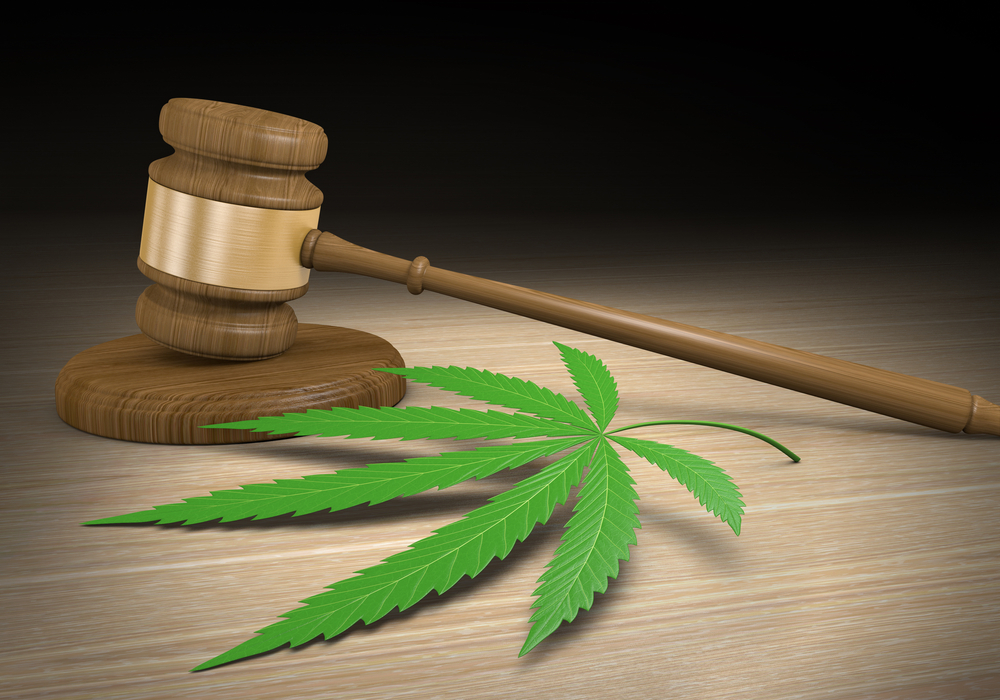Is Delta 10 Legal? With the rising interest in cannabinoids, particularly the lesser-known Delta 10, a common query revolves around its legality.
Understanding the legal status of Delta 10 THC is crucial for consumers and businesses alike, considering the evolving regulations surrounding cannabis derivatives.
Let’s delve into the legal considerations surrounding Delta 10 and explore its status in the ever-shifting legal framework.
>> Check the best prices for Delta-10 products here
What is Delta 10?
Delta 10 is a relatively new cannabinoid that has gained attention in the cannabis industry. Similar to its counterparts, delta 8 and delta 9, delta 10 is a form of THC.
THC is the compound in cannabis responsible for its psychoactive effects. Delta 10 is derived from hemp plants, which contain trace amounts of this cannabinoid.
Unlike delta 8 and delta 9, which are more well-known, delta 10 is not as widely studied. However, it is believed to have similar psychoactive effects and potential medicinal properties.
The Legal Status of Delta 10
The legal status of Delta 10 THC is a complex issue that varies depending on federal and state regulations. At the federal level, delta 10 THC is considered legal as long as it is derived from hemp and contains less than 0.3% delta 9 THC.
This distinction is important because the 2018 Farm Bill legalized the production and sale of hemp and hemp-derived products, including certain cannabinoids like delta 10 THC.
However, it’s important to note that individual states may have their own regulations and restrictions when it comes to Delta 10 THC. Some states have explicitly banned Delta 10 THC, while others have placed restrictions on its sale and use.
It’s crucial to familiarize yourself with the specific regulations in your state before purchasing or using Delta 10 THC products.
Difference Between Delta 8, Delta 9, and Delta 10
To fully grasp the significance of delta 10, it is essential to understand the differences between delta 8 sold by delta 8 brands, delta 9, and delta 10 THC.
Delta 8 and Delta 9 are the more well-known forms of THC, with Delta 9 being the primary form found in cannabis seeds. Delta 8 and Delta 10 have similar chemical structures to Delta 9 but differ in the placement of their bond.
Delta 8 THC is known for its calming and relaxing effects. It provides a mellow high and is often described as smooth and clear-headed. Delta 9 THC is the traditional form of THC often used in THC carts and is responsible for the euphoric feeling associated with cannabis use.
Delta 10 THC, on the other hand, is believed to have more energizing and uplifting effects compared to Delta 8 and Delta 9.
>> Check the best prices for Delta-10 products here
State Regulations on Delta 10
As mentioned earlier, the legality of delta 10 THC can vary depending on state regulations. Some states have explicitly banned Delta 10 THC, while others have placed restrictions on its sale and use. Here is a list of states where delta 10 THC is currently illegal:
- Alaska
- Arizona
- Arkansas
- Delaware
- Idaho
- Iowa
- Mississippi
- Montana
- Nebraska
Federal Regulations on Delta 10
At the federal level, delta 10 THC is considered legal as long as it is derived from hemp and contains less than 0.3% delta 9 THC.
This distinction is crucial because the 2018 Farm Bill legalized the production and sale of hemp and hemp-derived products, including certain cannabinoids like delta 10 THC.
However, it’s important to note that federal regulations may change, and it is always advisable to stay updated on any new developments or changes in the legal status of Delta 10 THC.
Potential Benefits of Delta 10
While research on delta 10 THC is limited, early anecdotal evidence suggests that it may have a range of potential benefits. Here are some of the potential benefits that have been attributed to delta 10 THC:
- Relaxation: Delta 10 THC has been reported to provide a sense of relaxation and calmness, similar to other forms of THC.
- Euphoria: Users have described experiencing euphoric feelings after consuming delta 10 THC.
- Potential Pain Relief: Some individuals have reported that delta 10 THC may help alleviate pain,[1] although more research is needed to understand its full potential in this regard.
It’s important to note that these potential benefits are based on anecdotal evidence and individual experiences. More research is needed to understand the effects and potential benefits of delta-10 THC fully.
Legal Alternatives to Delta 10
If delta 10 THC is not legal in your state or if you prefer to explore legal alternatives, there are other cannabinoids and products available that may provide similar effects. Here are some legal alternatives to consider:
- CBD: Cannabidiol (CBD) is a non-intoxicating cannabinoid that is widely available and legal in most states. CBD products like CBD gummies can offer relaxation and potential therapeutic benefits without the intoxicating effects of THC.
- Delta 8 THC: Delta 8 THC is another form of THC that is derived from hemp and is federally legal. It offers a milder and more calming experience compared to delta 9 THC, making it a popular alternative for those seeking a different kind of high.
- Other cannabinoids: There are numerous other cannabinoids found in weed strains that may offer different effects and potential benefits. Some examples include CBG (cannabigerol) and CBN (cannabinol). These cannabinoids may be worth exploring if you’re looking for legal alternatives to delta 10 THC.
It’s important to note that the effects and benefits of these alternatives may vary, and it’s always advisable to do your research and consult with a healthcare professional before trying any new products.
>> Check the best prices for Delta-10 products here
FAQs
We’ll answer some frequently asked questions about Delta 10 and its legality.
Does Delta 10 Give a High?
Yes, delta 10 THC can cause intoxication and provide a high. However, the specific effects and intensity of the high may vary depending on factors such as dosage, individual tolerance, and the presence of other cannabinoids or compounds in the product.
What States Is Delta 10 Illegal In?
Delta 10 THC is currently illegal in the following states: Alaska, Arizona, Arkansas, Delaware, Idaho, Iowa, Mississippi, Montana, and Nebraska. It’s important to familiarize yourself with the regulations in your state before purchasing or using Delta 10 THC products.
Is Delta 10 Stronger Than Delta 9?
The potency and strength of delta 10 THC compared to delta 9 THC can vary depending on multiple factors, including individual tolerance and dosage. It’s important to start with a low dose of delta 10 THC and to monitor your body’s response to determine the appropriate strength for you.
Is Delta 8 or Delta 10 Stronger?
The strength of delta 8 and delta 10 THC can vary depending on factors such as dosage and individual tolerance.
Some individuals may find delta 8 THC to be stronger, while others may find delta 10 THC to be more potent. It’s important to start with a low dose and adjust accordingly based on your personal experience.
Final Thoughts
Delta 10 THC is a unique and promising cannabinoid that offers a potentially uplifting and energizing experience.
The legal status of delta 10 THC can vary depending on federal and state regulations. It is federally legal as long as it is derived from hemp and contains less than 0.3% delta 9 THC. However, individual states may have their own restrictions and regulations.
As with any cannabinoid or substance, it’s always advisable to do your research, consult with a healthcare professional, and adhere to local regulations before purchasing or using Delta 10 THC products.
>> Check the best prices for Delta-10 products here
References:
McDonagh, M. S., Morasco, B. J., Wagner, J., Ahmed, A. Y., Fu, R., Kansagara, D., & Chou, R. (2022). Cannabis-Based Products for Chronic Pain: A Systematic Review. Annals of Internal Medicine, 175(8), 1143–1153. https://doi.org/10.7326/M21-4520



![How to Get a Business License? [A Comprehensive Guide]](https://citizenside.com/wp-content/uploads/2023/11/how-to-get-business-license-300x169.png)